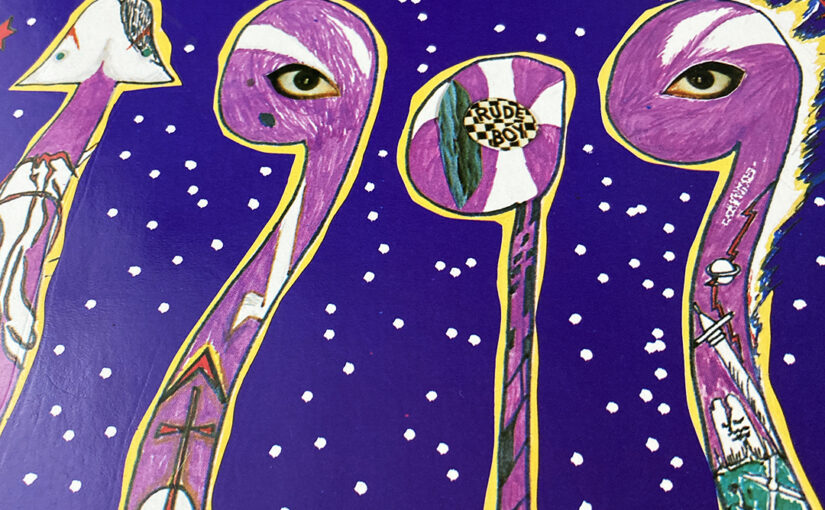1999 (1982)
Do you know that Watchmen comic panel which became a meme? The one of Dr Manhattan on Mars saying he’s tired of Earth, people and being caught in the tangle of their lives. That’s Prince in his taxicab solitude. He’s doing exactly what he said he would do in Annie Christian, and using taxis as a transitory, liminal space to retreat into and shelter from the world’s evils. It’s his coping mechanism for fleeing trouble-winds. But he’s not alone in this escape pod and it soon becomes the setting for one of his fantasy conquests, like The Ballad of Dorothy Parker or Darling Nikki, where redemption is delivered via a sexual encounter with a stranger. I say it’s the setting but presumably when we start hearing the bed-springs we’ve left the cab and are at the nameless driver’s “mansion” after she accepted his fare in tears. Or could this sexual fantasy be playing out in the passenger’s mind while he’s still in the back seat, drifting off to the bass-led funk of the cab’s engine? When this section starts three minutes in, Prince’s vocals, previously drained of any emotion other than ennui, suddenly flare up with Yeats’ lust and rage. Jill Jones’ pleasured moans accompany the sound of Prince thrusting out his anger on subjects including jealousy of his half-brother Duane, politicians, discrimination, greed, Yosemite Sam (?!) and, to pick up his theme from Sexuality, Disneyland tourists. Once he hits his stride, he mellows and starts dedicating each thrust to the creator of man, heavenly bodies, and those Disneyland tourists again. He eventually remembers his manners and addresses the woman he’s having sex with – a dedication which, in a lightning-quick scaling of Diotima’s ladder gets expanded out to women in general, and then to platonic love. Prince’s final tribute is to the wind, as he now recognises the cold trouble-winds of the first verse and chorus as the motivating force propelling him onward. Like Dr Manhattan, a sexual partner has helped him reach an epiphany in his solitude. He realises life isn’t something he should be trying to escape from. “This galaxy’s better than not having a place to go” he concludes and we’re returned to the gentle pace of the opening section, now with seagulls and seven chimes of a clock. Could this be the new dawn? Welcome bursts of guitar follow which unfortunately do not spiral out of control and drown out the rest of the track like it does in its initial template: the posthumously released Rearrange. That wouldn’t have fit the narrative of an existensial crisis averted but given the choice of listening to turmoil or inner peace, I would pick turmoil every time. Plus, it beats trying to work out what the sound of a mouth gargle and a trumpeting elephant represent.

